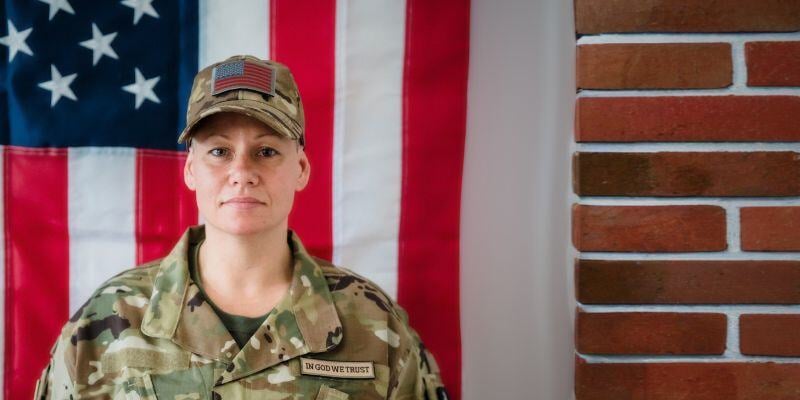Advantages for Veteran-Owned Businesses: Grants, Partnerships, & Government Contracts
April 1st, 2025 | 6 min. read

If you’re a U.S. Armed Forces veteran who owns a business, you may have heard that there are some benefits for you to claim if you become a certified veteran-owned business.
While there are some nuances, there are some pretty big reasons to get certified!
At CSI Accounting & Payroll, we’ve worked with small business operations for nearly 60 years. That means we’ve heard plenty of questions about veteran-owned businesses, including:
- Am I a veteran-owned business? What qualifications do I need to have?
- What advantages are there? Tax benefits, funding, government contracts?
- How do I register as a veteran-owned business?
What Qualifies as a Veteran-Owned Business
If you’re a veteran and own a business, is that enough to be a veteran-owned business? Somewhat – but there are specific requirements.
The Small Business Administration (SBA) oversees the Veteran Small Business Certification (VetCert) program. You can register as a Veteran-Owned Small Business (VOSB) or Service-Disabled Veteran-Owned Small Business (SDVOSB) if:
- The government has documentation that you served in the U.S. Armed Forces.
- You have at least 51 percent ownership of the business.
- You are involved in the business on an owner level.
- You are registered with SAM.gov.
- You meet the SBA’s size standards for being a small business.
You may have set up your business with a veteran owner because you know there are benefits – but what are they? Let’s talk about them!
Benefits for Veteran-Owned Businesses
Without an official certification, you lack some credibility, but you can still claim to be veteran-owned and use that marketing on your website to incentivize customers to buy from your business.
Plus, whether you’re certified or not, there are no tax benefits for veteran-owned businesses.
So, why get certified? It unlocks three more benefits:
- More opportunities for government contracts
- More opportunities to work with businesses
- More grant opportunities
Government Contracts
Certified veteran-owned businesses are preferred vendors for the federal government.
The federal government aims to award a portion of its contracts to small disadvantaged businesses, including at least seven percent of Veteran Affairs (VA) contracts for certified VOSBs and SDVOSBs, plus at least five percent of all federal contracting dollars for SDVOSBs.
That means even if your bid for a job is slightly higher than a bid from a non-certified company, the government may award you the contract to meet its diversity goals.
Business Diversity Programs
These days, many businesses of all sizes have supplier diversity programs. Being certified can help you gain access to these programs.
They may pledge that a certain percentage of the vendors they work with must be diverse businesses, which includes certified veteran-owned businesses.
Grant Opportunities
Don’t work with the government or large companies? Then this benefit will stand out to you!
It can be challenging to secure funding (including grants), but becoming a certified VOSB or SDVOSB can give you more opportunities since many grants are exclusively available to certified businesses.
Discover some ongoing small business grants here!
How to Get Certified as a Veteran-Owned Business
Is becoming certified worth it? We certainly think so.
What do you have to lose? Just time and effort – or a fee for professional assistance. We can help!
Jo Rawald, our partner in this area, offers a one-year CertifyVET program to guide you through the certification process and help you leverage your veteran status for business growth.
While many other advisors charge upwards of $5,000 just to get certified, Jo charges a lower fee for a more in-depth, ongoing service. The CertifyVET program includes:
- Assisting with the application. This includes finding loopholes and answering unique questions.
- Submitting the application to the certifying agency. This can take the SBA between two weeks and six months to approve. They need to validate the paperwork and potentially visit your business.
- Ongoing 1-1 sessions for finding opportunities. This includes searching for grants, government contracts, and partnership diversity programs once you’re certified. These one-on-one coaching sessions and resources are invaluable for getting more sales!
Interested in learning more? Check out her veteran certifying services here!
Get Certified & Still Get Tax Benefits!
While there are no tax benefits for being a certified veteran-owned business, a monthly accountant can help you by working on your tax strategy year-round.
Now that you know about the requirements to be a veteran-owned business, what advantages there are, and how you can register, are you ready to check out monthly accounting services?
If so, please consider CSI Accounting & Payroll! To see if we can be a good fit for your business, click the button below for a free consultation:
Not ready to talk? That’s okay! First, find out if monthly accounting is the best solution for your business by clicking the image below:
Brian is the owner of CSI Accounting & Payroll. After earning a double major in Accounting and Financial Management from the University of North Dakota, he joined CSI in 1996 and purchased it in 2002. With decades of experience, Brian now focuses on education: contributing to professional associations and business books, actively participating in continued learning for his team, and, of course, sharing transparent insights on CSI’s website.

